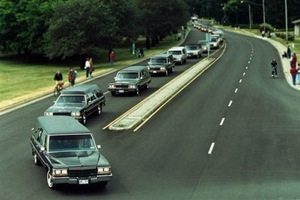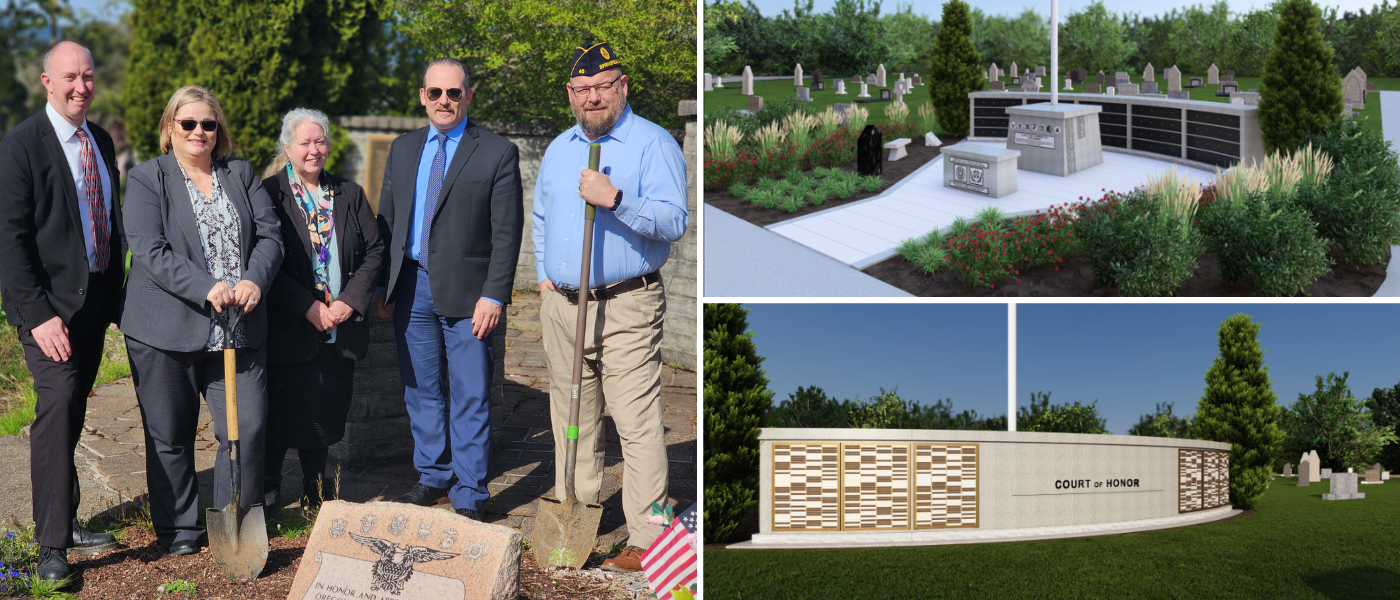The Procession: How Important is it Really?
 Do you realize how much time, effort and money go into a funeral procession? A new Cadillac Hearse cost about one hundred thousand dollars, it needs regular upkeep, and must be replaced regularly (anyone who has ever experienced car trouble during a funeral procession can attest to the importance of reliable equipment). Gas prices aren’t going any lower, and personally, I’ve spent weeks of my life standing out in the sun, rain and snow, flaging, and lining up cars for processions. Then, there’s the inconvenience to others.
Do you realize how much time, effort and money go into a funeral procession? A new Cadillac Hearse cost about one hundred thousand dollars, it needs regular upkeep, and must be replaced regularly (anyone who has ever experienced car trouble during a funeral procession can attest to the importance of reliable equipment). Gas prices aren’t going any lower, and personally, I’ve spent weeks of my life standing out in the sun, rain and snow, flaging, and lining up cars for processions. Then, there’s the inconvenience to others.
In Wisconsin, processions have a maximum speed of 45 miles per hour, and though you still see some respectful people stopping or taking off their hats as a procession comes by, more often there’s honking or dangerous passing from those who feel that they shouldn’t be slowed down by someone else’s death.
So why do we bother?
The word funeral actually comes from the latin word for torchlight procession, the traditional ancient rite, the main event, the respectful and cermonious transport of a person to their place of rest. This is the final journey, the last walk a family takes with their loved one, the ‘second line’ of the Jazz funeral, and it is both symbolic and healing. The procession is a public expression and enactment of the love, respect, loss of a loved one that allows both family and friends to participate. It is an opportunity for the residents of a town to witness this expression of love and respect. The procession says:
This person was important to us.
This day is not like other days.
This journey is not like other journeys.
Our loss is meaningful enough that we take special care in a
special vehicle to solemnly and ceremoniously convey the earthly remains of our
loved one to a special place where their life will be honored and remembered.
At ground zero after 9/11, whenever a part of one of the victims bodies was found, all work stopped, and even if it as the tiniest part of someone’s remains, a hearse and escort slowly drove out as all present stood at attention in respectful silence. This is the standard of conduct that should be followed in respect for the passing of any life.
Why a hearse? For many, a Cadillac or Lincoln hearse feels to be the appropriate vehicle to convey the respect on solemnity of the occasion, but this isn’t so for everyone. The important thing is that the vehicle is appropriate and intentional. I have witnessed and encouraged processions where the deceased was carried by horse drawn wagon, in a loved truck, in a special motorcycle hearse or on foot, and where cremated remains were carried in a favorite sports car, or by bicycle. I have led proccessions with fire trucks, police cars, motorcycles, an hot rods following, and these were perhaps the most poingnant and meaningful and respectful of all.
A funeral procession is one of the most meaningful and beautiful parts of a funeral service, and it’s actually one of the least expensive. Why go to all the bother? Isn’t that person important enough, whoever they are, that everyone can slow down a bit and drive slowly with their lights on for their final ride through town?
This Post is Courtesy of: Pat Mcnally (CD.com member)
Read Pat’s Blog: http://www.dailyundertaker.com




